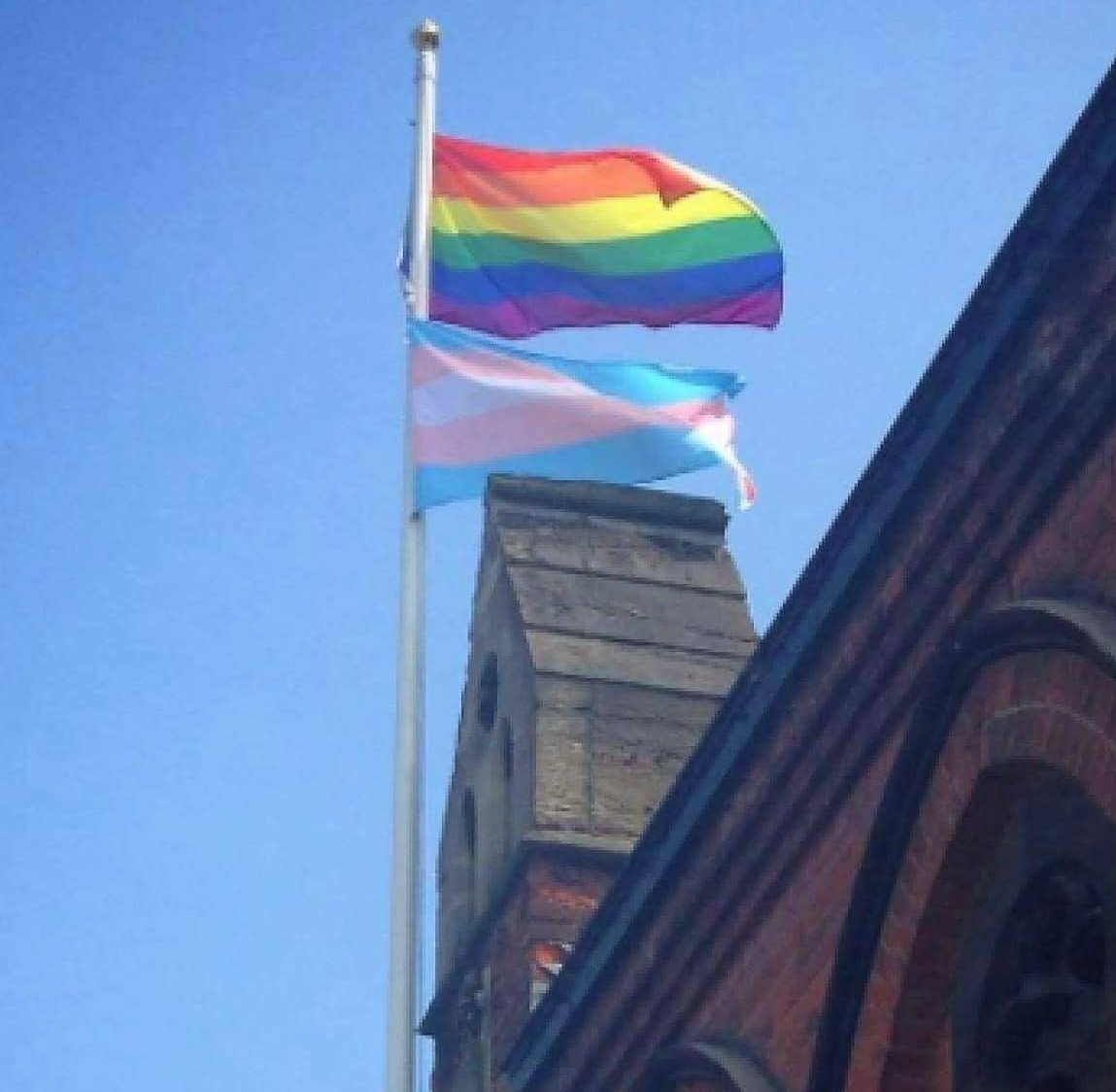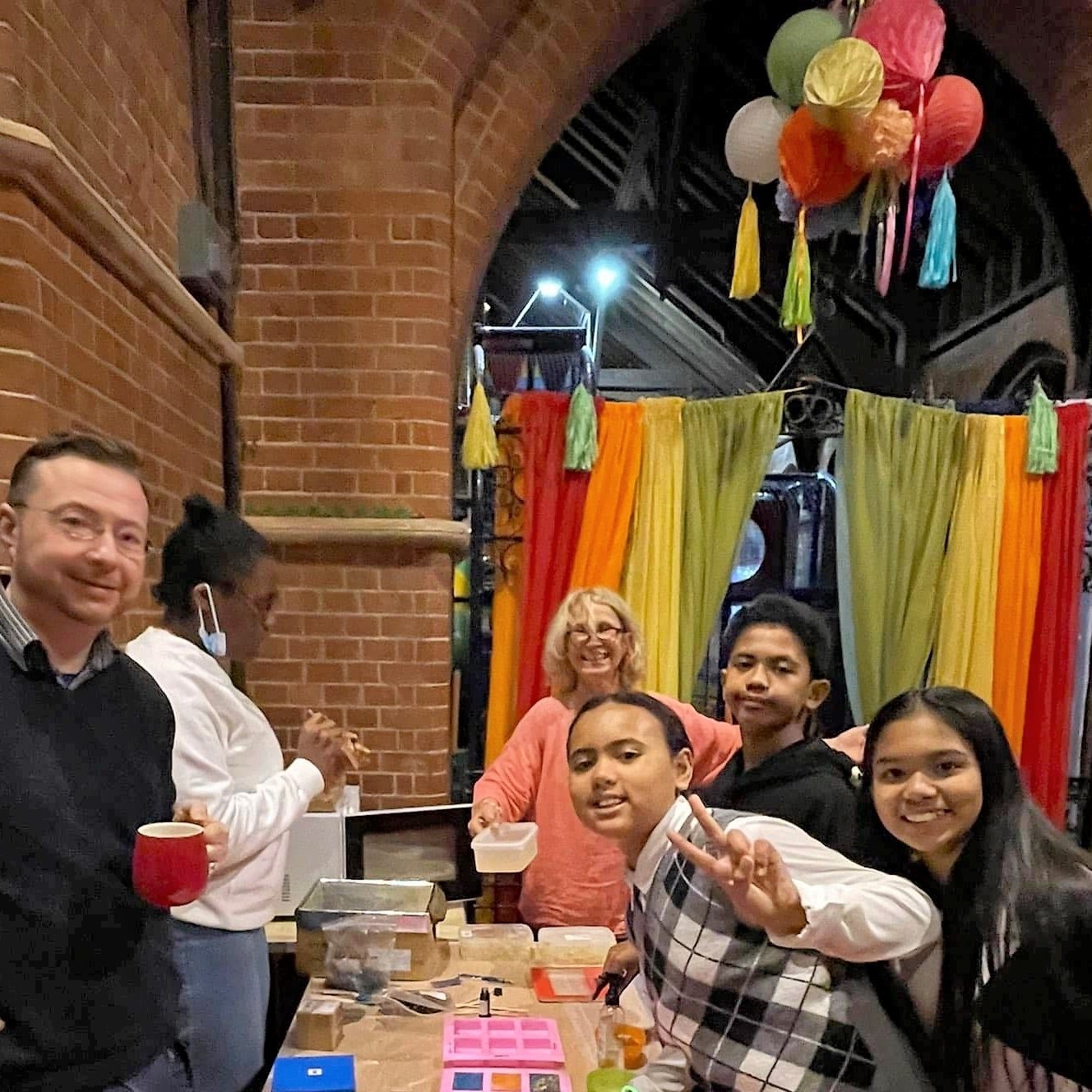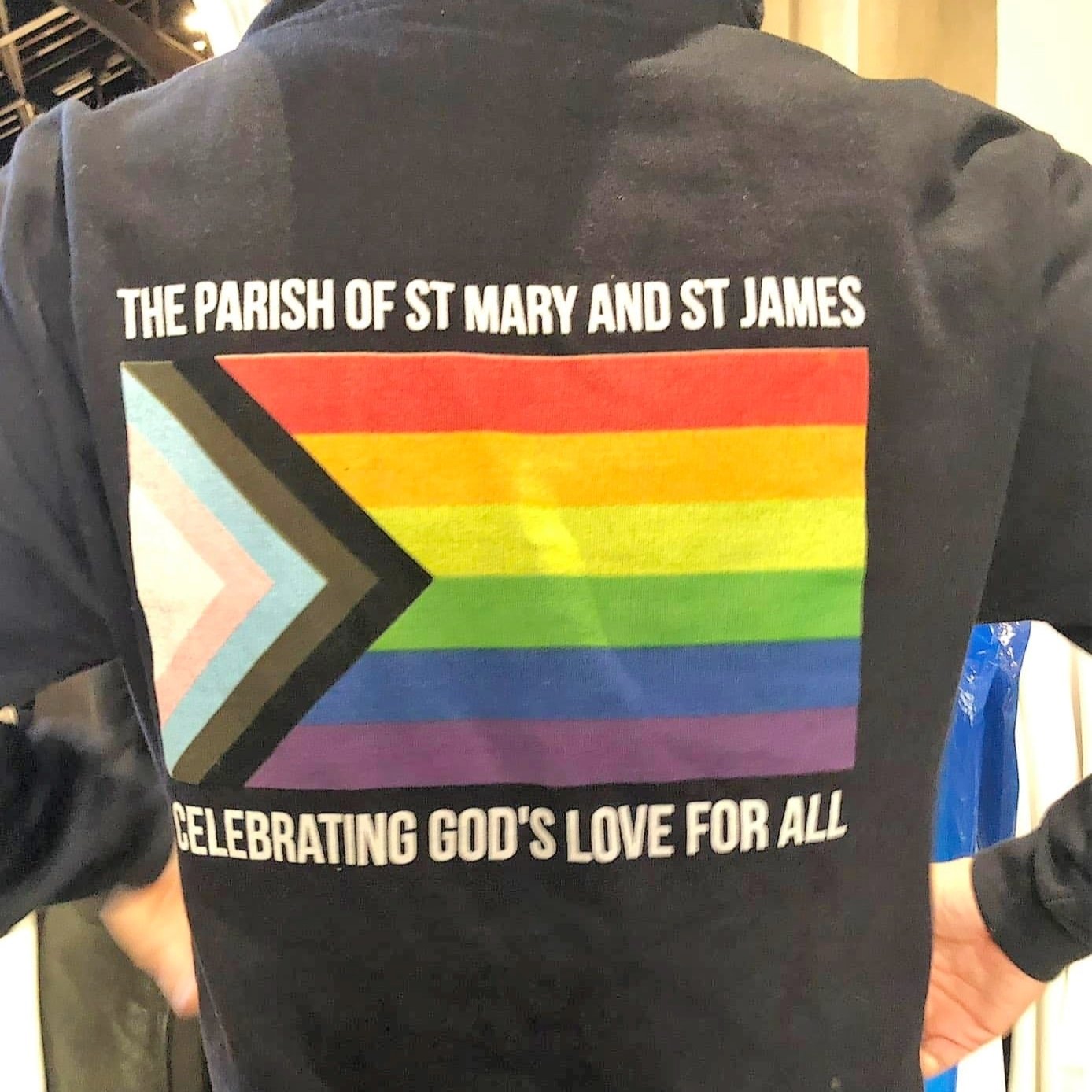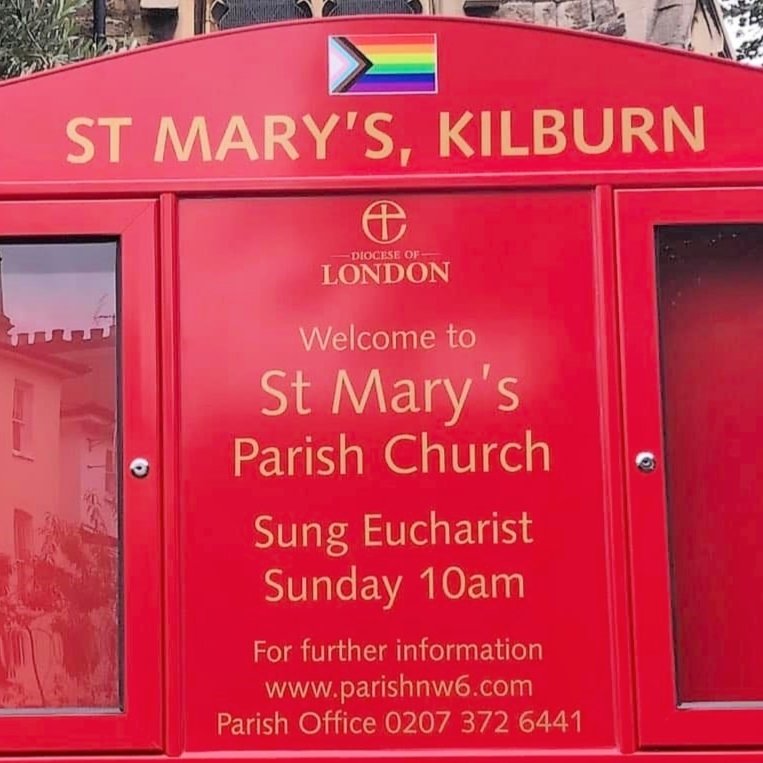The Pride flag is a Gospel issue in our churches




A MOTION submitted to the Church of England's governing body, General Synod, this month calls for a ban on the display of the Pride rainbow flag on church buildings, because
‘what [the flag] represents… is contrary to the word of God’.
Revd Robert Thompson, vicar of the parish which hosts our Open Table community in West London, and a member of General Synod, responds:
To fly the Pride flag has a safeguarding function. It indicates to LGBTQIA+ people like me that this community is an ark in the homophobic flood in many of our churches. To take the flag away is to say our lives and safety are unimportant.
So here in the parish of St Mary’s, Kilburn and St James’, West Hampstead, we are proud to fly the Pride flag. It is a Gospel witness to the fact that God calls us to be a ‘Rainbow Easter’ people: as diverse and varied as the wonderful range of colour of all sorts that God gives to us in creation.
We also have rainbow curtains at St James’s, rainbow sweatshirts which call us to celebrate God’s love for all, and new signage at St Mary’s which has the flag in prominent place.
In using it, we are not supporting a fictional ideology of fictional LGBTQIA+ lifestyles, as Samuel Mulgrave, the member of the Church of England’s General Synod who has proposed the motion to ban the Pride flag from churches, suggests.
No, on the contrary, our experience is that, simply because we use it, we become a place for refugees from other parishes who have suffered abuse at the hands of ‘unRainbow unEaster’ pastoral practice.
Just as in the story of Noah and the Ark, to fly the flag is to say we are an ark, we are a safe place for you. To fly the flag has a safeguarding function which protects vulnerable LGBTQIA+ people from the harm that too many Christians want to do to us. All parishes which celebrate the diversity of God’s creation should use it. All parishes should be transparent - that’s what we should all insist on…
This would be the whole point on why Pride flags are gospel issues in our churches:
“Pride is important because someone tonight still thinks they’re better off dead than being themselves.”
It is about choosing life for ourselves, and for others as God in Christ commands us.
Revd Robert is not alone in this view. The 2021 LGBT+ Christian Safeguarding Survey showed that only a third ‘feel safe to be out’ in their local churches, and just one in five feel ‘safe to be out to the wider Christian community’. Visibly inclusive statements and signs were among the things that make the greatest difference to their feeling of safety in church. READ MORE.


